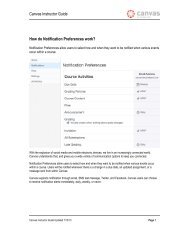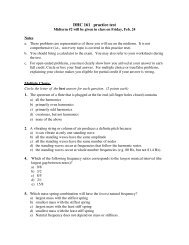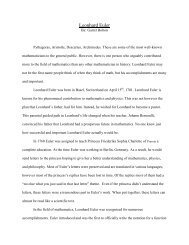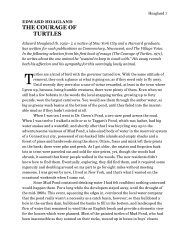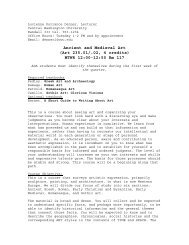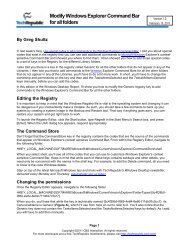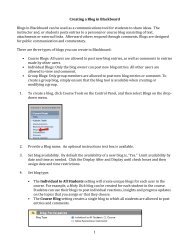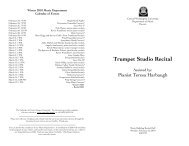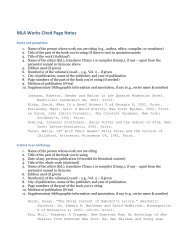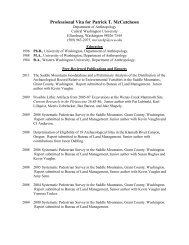The Ingenious Gentleman Don Quixote de la Mancha
The Ingenious Gentleman Don Quixote de la Mancha
The Ingenious Gentleman Don Quixote de la Mancha
You also want an ePaper? Increase the reach of your titles
YUMPU automatically turns print PDFs into web optimized ePapers that Google loves.
206 <strong>Don</strong> <strong>Quixote</strong> <strong>de</strong> <strong>la</strong> <strong>Mancha</strong> <br />
<br />
CHAPTER LXIV. <br />
TREATING OF THE ADVENTURE WHICH GAVE DON QUIXOTE MORE <br />
UNHAPPINESS THAN ALL THAT HAD HITHERTO BEFALLEN HIM <br />
<br />
. . . One morning as <strong>Don</strong> <strong>Quixote</strong> went out for a stroll along the beach, 53 arrayed in <br />
full armor (for, as he often said, this was "his only gear, his only rest the fray," and <br />
he never was without it for a moment), he saw coming towards him a knight, also in <br />
full armor, with a shining moon painted on his shield, who, on approaching <br />
sufficiently near to be heard, said in a loud voice, addressing himself to <strong>Don</strong> <strong>Quixote</strong>, <br />
"Illustrious knight, and never sufficiently extolled <strong>Don</strong> <strong>Quixote</strong> of La <strong>Mancha</strong>, I am <br />
the Knight of the White Moon, whose unheard‐of achievements will perhaps have <br />
recalled him to thy memory. I come to do battle with thee and prove the might of <br />
thy arm, to the end that I make thee acknowledge and confess that my <strong>la</strong>dy, let her <br />
be who she may, is incomparably fairer than thy Dulcinea <strong>de</strong>l Toboso. If thou dost <br />
acknowledge this fairly and openly, thou shalt escape <strong>de</strong>ath and save me the trouble <br />
of inflicting it upon thee; if thou fightest and I vanquish thee, I <strong>de</strong>mand no other <br />
satisfaction than that, <strong>la</strong>ying asi<strong>de</strong> arms and abstaining from going in quest of <br />
adventures, thou withdraw and betake thyself to thine own vil<strong>la</strong>ge for the space of a <br />
year, and live there without putting hand to sword, in peace and quiet and beneficial <br />
repose, the same being needful for the increase of thy substance and the salvation of <br />
thy soul; and if thou dost vanquish me, my head shall be at thy disposal, my arms <br />
and horse thy spoils, and the renown of my <strong>de</strong>eds transferred and ad<strong>de</strong>d to thine. <br />
Consi<strong>de</strong>r which will be thy best course, and give me thy answer speedily, for this day <br />
is all the time I have for the dispatching of this business." <br />
<br />
<br />
53 <strong>Don</strong> <strong>Quixote</strong> and Sancho, after numerous encounters (such as <strong>Don</strong> <strong>Quixote</strong>’s <br />
<strong>de</strong>scent into the cave of Montesinos and their stay with a p<strong>la</strong>yful Duke, who gave <br />
Sancho the “governorship of an is<strong>la</strong>nd” for ten days), are now in Barcelona. Famous <br />
as they are, they meet the viceroy and the nobles; their host is <strong>Don</strong> Antonio Moreno, <br />
“a gentleman of wealth and discernment who was fond of amusing himself in an <br />
innocent and kindly way.”





